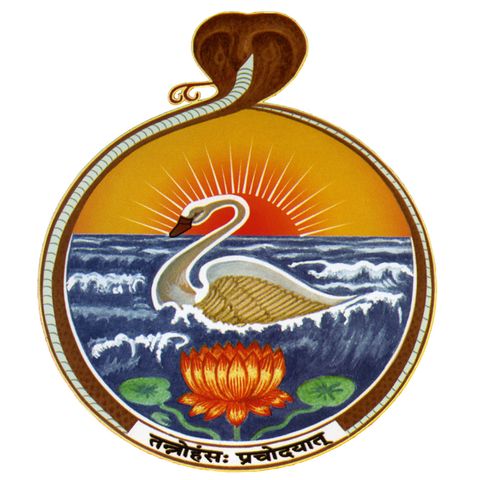Vivekachudamani 2 | Qualifications for Vedanta: Turning Away from the Unreal and Towards the Real | Swami Tattwamayananda

Iscriviti gratuitamente
Ascolta questo episodio e molti altri. Goditi i migliori podcast su Spreaker!
Scarica e ascolta ovunque
Scarica i tuoi episodi preferiti e goditi l'ascolto, ovunque tu sia! Iscriviti o accedi ora per ascoltare offline.
Descrizione
Vivekachudamani Verses: 19, 20, 21, 22, 23, 24 This lecture was given by Swami Tattwamayananda at Stanford University on May 12, 2019. The lecture was hosted by the Stanford Hindu...
mostra di piùThis lecture was given by Swami Tattwamayananda at Stanford University on May 12, 2019. The lecture was hosted by the Stanford Hindu Students Association.
-Viveka means discerning what is real (nitya) and rejecting what is unreal (anitya). Our understanding of the real (nitya) reveals how far we have evolved. Maya is the power that projects something unreal in front of us that we take for the real. As we evolve, our sense of priority changes.
-Vairagya often begins with a negative running away from something. Eventually, it evolves into a positive turning towards a higher spiritual ideal.
-The six disciplines of shama, dama, uparati, titiksha, shraddha and samadhana.
-Mumukshutvam is the very foundation of all the disciplines. It can be expressed as an intense desire to learn more about the scriptures, attend classes, or realize the highest reality. This desire pushes away lower priorities so all of the necessary qualifications come to you automatically.
-Viveka means distinguishing between the real (Brahman) and the unreal (mithya). Mithya comes through a concealment of the real (avarana) and a projection of the false (vikshepa). This is the truth at the philosophical level. At the experience level, the unreal is seen to be nothing but the real, so the world is seen as real as Brahman.
-Traditionally, disciples practice shravana’ (श्रवण), `manana’ (मनन), `nididhyasana’ (निदिध्यासन) so that the reality of the statements made by the teacher become clear.
-Vairagya means giving up all the transitory things. Every sense object, which is perceived by the mind and the senses, is necessarily limited and transitory so it cannot be the Absolute.
-Shama means mind-control but that is not psychologically realistic. The real meaning is to turn the mind to a higher counterfocus. It is important to be reminded that enslavement by transitory sense objects is very dangerous.
-Aparoksha anubhuti is also explained. It is very important to study Vedanta with the aid of authentic teachers and commentaries.
-Dama and Uparati mean keeping the senses withdrawn in their respective locations. If the mind is not connected to a sense organ then, the sense objects are not experienced.
-Mumukshutvam, desire for the real, turns these disciplines into a positive pursuit. Viveka is enjoyed because it is understood to save us from problems.
Informazioni
| Autore | Vedanta Society, San Francisco |
| Sito | - |
| Tag |
Copyright 2024 - Spreaker Inc. an iHeartMedia Company
